Meet the Canadians of Mining

The Canadians of Mining Campaign was launched in May 2024 during National Mining Week.
Meet the Canadians of Mining below to learn more about the diverse array of individuals involved in Canada's mining sector and mining's presence in communities.
Amanda McCallum, Executive Director of Mining Industry NL
Transcript
Work allows me to connect my background in science and geology with communications. For me it's important for people to know what on earth is in their stuff and where on earth it comes from.
I've been working in the mining and mineral resources sector for almost 20 years. An industry colleague and myself were a part of creating the Newfoundland and Labrador Women In Mining Forum. It sort of culminated into the creation of this guide: The Women In Mining Career Connections and shared throughout the provincial school system.
I look forward to seeing a future in the mining and mineral resources sector that engages more youth and being able to come together and work together and transitioning to a low carbon economy and develop minerals and metals that not only meet our basic needs, but enhance and enrich our quality of life.
Amanda McCallum is a geologist, prospector, communications specialist, educator and entrepreneur. She is the Executive Director of Mining Industry NL, a not-for-profit industry association that represents all sectors of the mineral industry. Previously, Amanda was the founder and president of Ignite Education Inc., a consultancy company specializing in geoscience education, outreach, communications, and project management. Amanda is also the author of the Minerals Guide Newfoundland and Labrador and the Women in Mining Career Connections Guide, and the principal author of Discovery Global Geopark’s application dossier, in which she led this international project to secure Newfoundland and Labrador’s first UNESCO Global Geopark designation.
Ashley Jay, Engineer in Training (EIT) at Skeena Resources
Transcript
dẕenēs̱ hoti’e (Hello/Good day)
Ashley Jay ūshye (My name is Ashley Jay)
Vancouver nas̱dē (I live in Vancouver)
Tāłtān ja sini (I am from the Tahltan Nation)
sesk’iye da’ā ja’ sini (I belong to the crow clan)
My name is Ashley Jay. I currently live in Vancouver and I'm part of the Tahltan Nation and I belong to the Crow Clan.
Working with a company like Skeena, we are developing and designing this mine along side the Tahltan Nation so that it incorporates their values and their design principals and I think that that is a company's responsibility.
When a mine is closing and you're reclaiming that area, executing that along side the nation is incredibly important. They're the ones that are going to have to live with whatever you've done to that land... forever.
Another aspect of my job that I am very passionate about is kind of bridging that gap between sustainability and engineering from an Indigenous perspective and just ensure that the values of the Tahltan people are considered every step of the way.
Change does come from within and I'm in a unique position where I'm able to actually advocate for the land and the water and the future generations and actually be part of that change.
Ashley Jay is a Tahltan Engineer-in-Training at Skeena Resources. Her work involves incorporating Indigenous design principles and values at a mine site and highlights how the mining industry works with Indigenous communities to benefit from and take part in the process.
Chamirai Nyabeze, Network Director at the Mining Innovation Commercialization Accelerator (MICA) and VP of Business Development and Commercialization
Transcript
For somebody who is new and looking at the mining industry, I would urge them to just look around and realize that mining builds the world.
My job entails connecting innovations to the mining industry. I'm really lucky in that my job is all about identifying emerging solutions that are really really interesting.
I am inspired by change. And for those people who are pushing for change, they really inspire me. Also, knowing that mining is a primary industry that has transformative power to change the world, keeps me coming to work every day and wanting to make mining more innovative. Which means that mining will become more greener and more sustainable.
The mining industry is going to be responsible for raising the quality of life for the most people possible on this planet. As more people recognize the connection between the mining industry and the life that we all want to live, then people will understand why it's so important to make the mining industry green and cleaner.
As the Network Director at the Mining Innovation Commercialization Accelerator (MICA) and VP of Business Development and Commercialization at the Centre for Excellence for Mining Innovation (CEMI) Chamirai works to facilitate the development of mining innovation and technology.
Jennifer Beaudry, Senior Manager at Science North and Dynamic Earth
Transcript
At dynamic Earth, we showcase Sudbury's historical past, acknowledging the challenges of early mining while highlighting the remarkable journey towards environmental recovery.
Sudbury, as the community we know today, has been profoundly shaped by its rich history in mining. For over 125 years, mining has been the cornerstone of our local economy.
The early days of mining in Sudbury also brought about significant environmental impacts to the region. In the 1970's, Sudbury pioneered a remarkable initiative: the "re-greening" of industrial damaged lands. This initiative ultimately led to the development of a world-renowned recipe for re-greening. Today, collaborating closely with Indigenous communities, Sudbury's mining sector is committed to ensuring responsible practices that safeguard the environment and uphold social wellbeing for the region.
Jennifer Beaudry is a Senior Manager at Science North and Dynamic Earth, an interactive earth sciences museum in Greater Sudbury, Ontario, Canada. Born and raised in Sudbury, mining has had a large influence on her life and the local economy. At Dynamic Earth, her work involves educating youth and others on Sudbury's mining heritage as well as the contributions that good citizenship with mining has and can bring in terms economic and sustainable resource development.
Joanie Caron, Professor at the School of Indigenous Studies at the Université du Québec en Abitibi-Témiscamingue (UQAT) and Certification Strategic Advisor at Association de l'exploration minière du Québec (AEMQ)
Transcript
At dynamic Earth, we showcase Sudbury's historical past, acknowledging the challenges of early mining while highlighting the remarkable journey towards environmental recovery.
Sudbury, as the community we know today, has been profoundly shaped by its rich history in mining. For over 125 years, mining has been the cornerstone of our local economy.
The early days of mining in Sudbury also brought about significant environmental impacts to the region. In the 1970's, Sudbury pioneered a remarkable initiative: the "re-greening" of industrial damaged lands. This initiative ultimately led to the development of a world-renowned recipe for re-greening. Today, collaborating closely with Indigenous communities, Sudbury's mining sector is committed to ensuring responsible practices that safeguard the environment and uphold social wellbeing for the region.
As a professor at the Université du Québec en Abitibi-Témiscamingue, Joanie Caron specializes in the professional integration of Indigenous workforce in the mining sector. Joanie also participated in all stages of the development and implementation of the UL ECOLOGO® Certification, a responsible development standard for the mineral exploration industry.
View the alternate version of this video based on Joanie’s French testimony.
Shena Shaw, VP Environmental and Community Affairs at Western Copper and Gold
Transcript
I was raised in the Yukon, I grew up here, I'm raising my family here now. I've spent my whole career north of 60, and I think it's a great place to live.
I joined Casino, and Western Copper & Gold in particular, because I knew that this project could create economic prosperity for the Yukon in balance with rigorous environmental protection measures. I think this project has such a great opportunity to create lasting social and economic benefits for the communities that are near by and for the Yukon as a whole. Engagement with Yukoners is so important for this project and it's really why I joined the team to move this project forward.
What I love most about my job I couldn't pin down to one thing. We have such a great team here in the office. It happens to be all women and I think that's really important.
Mining careers can span such a huge breadth of specialties, its not just driving trucks, its environmental work, business, a wide variety of opportunities. And that's a really important part of my job: to start communicating what those opportunities are but it's also one I get the most enjoyment from.
Job Title: VP, Environmental & Community Affairs
Shena Shaw is the VP, Environmental and Community Affairs at Western Copper and Gold. Shena has been managing projects and contributing to environmental assessments across the North for nearly 20 years and she is supporting the Casino Project through the first ever socio-economic and environmental assessment Panel Review process in the Yukon. Shena has had a lengthy career in environmental consulting in Yellowknife and Whitehorse, focusing on the responsible development of resource extraction through the environmental assessment and Indigenous engagement processes of large-scale projects in the Yukon, Northwest Territories, Alaska and across Canada.
Vanessa Smith, Engineering Superintendent at Eldorado Gold Québec
Transcript
As far back as I could remember, you ask me: "What do you want to be when you grow up?" And the answer was always: "I want to be a doctor." In college, all that changed. And then, enter one particular career fair where I met Professor Hassani, and all I remember him saying is: "Come to mining!" So I enrolled, started working and I was hooked. I just loved it.
My name is Vanessa Carla Smith Gil. I was born in Maracaibo Venezuela. When I was six months old, I was adopted and moved to Canada with my parents. I had a hybrid cultural upbringing - something that has truly been beneficial throughout my career.
I am the Engineering Superintendent at Eldorado Gold's Lamaque mining complex in Val-d’Or. I have worked primarily in gold mining for most of my career. You can say that I am truly a gold digger! As a member of the Technical Services team at Eldorado Gold, I get to actively participate in the decision and acquisition of new technologies. How we do this is we trial the technology underground, get that feedback from operational and technical personnel and then they work on that product so that it becomes something that can be of use to the industry.
For anyone who's interested in joining the mining industry, I would say there is no better time like today. I think a common misconception in mining is that you need a specific skill set or you need to be from a specific background to be in the industry and I have to say that is completely false. I am a woman in mining, I am woman who was not born in Canada and I have been in the industry for 15 years and thriving in it.
Vanessa Smith is an Engineering Superintendent at Eldorado Gold Québec. In addition to her experience at Eldorado Gold Québec, Vanessa has over 15 years of experience working in hard rock mining across various roles such as Mine Supervisor and Engineering Coordinator at Agnico Eagle Mines Limited. Vanessa holds a bachelor’s degree in Mining Engineering from McGill University and a Project Management certificate from the University of Liverpool.
Zeinab Azadbakht, Geologist, Ontario Geological Survey
Transcript
A common misbelief regarding the mining industry is that it's a
male-dominated industry. That is simply not true. Females play
a significant role in exploration and mining programs. So if you
want to join mining or exploration programs, don't let that stop you.
Every day when I wake up and I want to go to work, I'm thinking
about my team and the people that I'm going to meet.
A big part of my job is to educate people in regard to the mineral
industry - all the sections of it. People bring me rocks and minerals
to identify and that would be my job: to identify the potential
and explain it to the client in a way that they can understand it.
What I love about my job is that I get to interact with so many
people with completely different backgrounds, learn a lot from
them and improve myself. Learn as much as you can, advance
yourself. Don't ever stop learning. Always seek more and ask
questions. People are very kind when it comes to our industry,
and they usually share their experiences with you.
Zeinab Azadbakht, P.Geo is the Timmins and Sault St. Marie regional resident geologist with the Ontario Ministry of Mines. She holds a PhD in economic geology from the University of New Brunswick and is the 2021 winner of Hawley Medal for the best paper published in the Canadian Mineralogist.
Zivi Schaffer, Researcher at Trent University
Transcript
One of the major concerns for each mining operation is how much CO2 is emitted over the lifetime of the mine and what that CO2 is doing to our atmosphere in a rapidly changing climate.
I work at Trent University as a researcher in carbon removal technologies and at the "PowerGeoLab", we lean into the fact that as rocks naturally break down, they remove CO2 from the atmosphere and so our goal is to encourage mining companies to implement these technologies to combat the emissions that they produce over the course of the mine's lifetime.
One common belief in the mining industry is that all mining activity leads to permanent environmental damage. But the good news is that we are working on it! Mines are going electric and we scientists are working on carbon removal technologies to try to increase emission offsets at each mine.
It may seem daunting but we've come a long way since the days of traditional mining practices and we're constantly working on modernizing our efforts and greening our industry.
Zivi Schaffer is a Researcher in carbon removal technologies at Trent University. Her work involves encouraging mining companies to implement these technologies to combat emissions produced at mine sites. She received a scholarship from the Mining Industry Human Resources Council.
Mieke Leonard, Registered Nurse and Owner of Fireweed Nurse Consulting Services
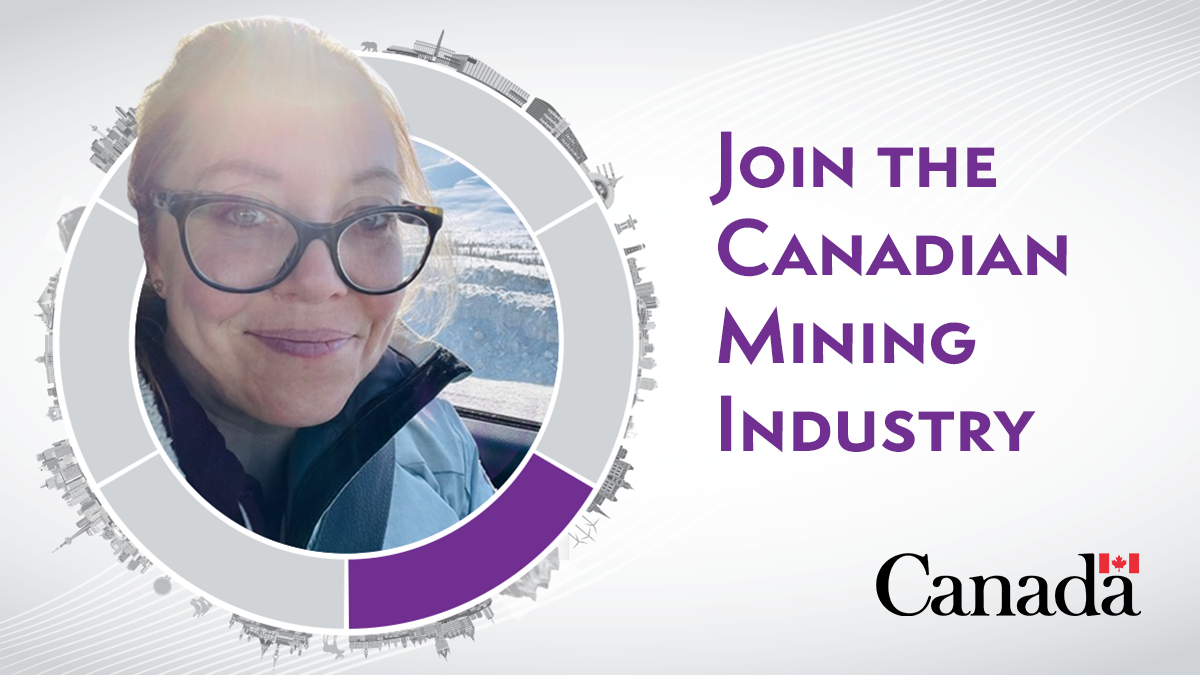
Mieke Leonard is a Registered Nurse and healthcare business owner in Canada's North. Mieke’s experience working as a remote health care provider to manage infections on a mine-site during the COVID-19 pandemic speaks to the need for preventative and occupational medicine in supporting mining industry growth and Indigenous economic reconciliation through mining. Mieke is passionate about patient care and advocating for mining workers, and the ways in which we can support and encourage health and safety in the mining and service supporting industries.
Hélène Timpano, Executive Vice President, Strategy and Corporate Development at Centerra Gold
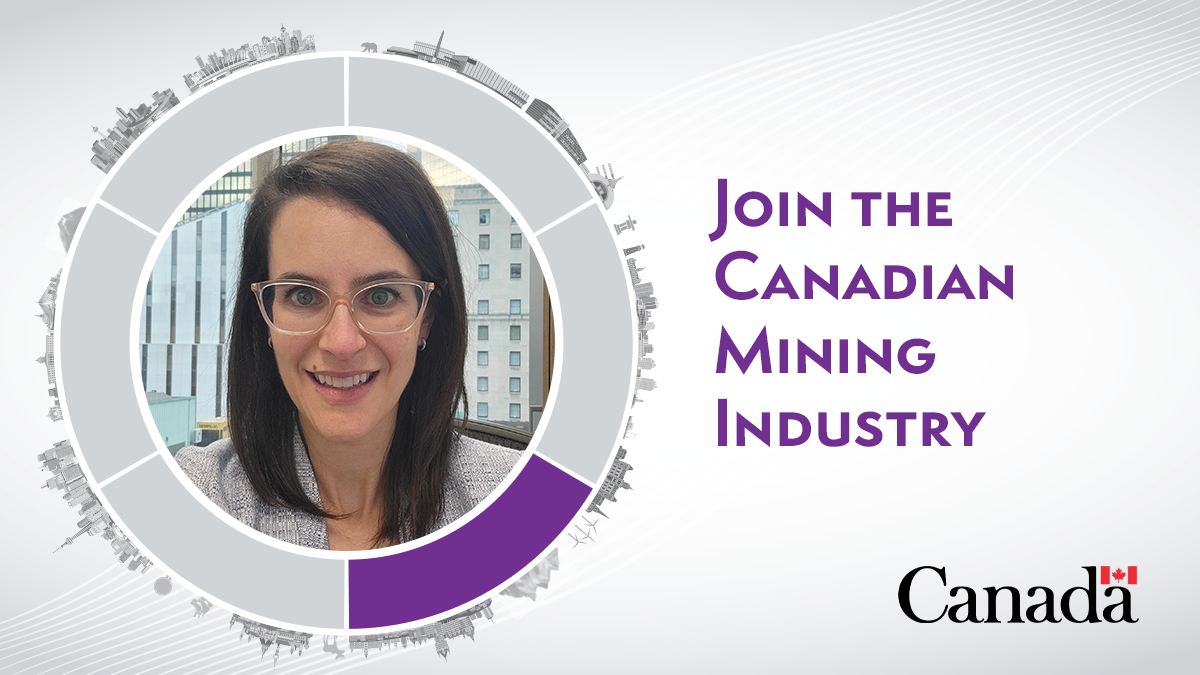
Hélène is the Executive Vice President, Strategy & Corporate Development at Centerra Gold, building on her experience in other executive roles and corporate functions. Hélène has Bachelor Degrees in Integrated Engineering and Business Administration from the Richard Ivey School of Business and Western University and a Masters in Business Administration from the Kellogg School of Management from Northwestern University.
Laleh Dashtban Kenari, Research Engineer
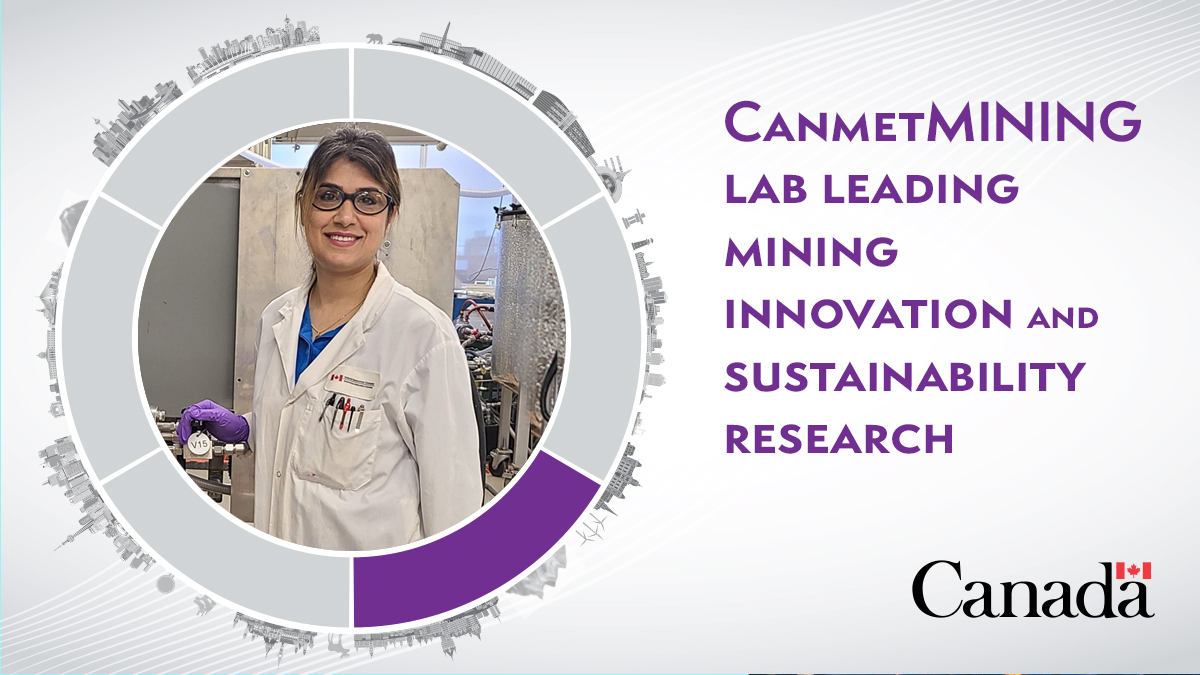
Laleh Dashtban Kenari is a research engineer at the CanmetMINING lab, who is leading research and development on mine discharge to recover critical minerals and reduce the environmental footprint of mining. She has consistently valued the support extended to her by her immediate supervisor and senior management at CanmetMINING. Throughout her career, she has observed a proactive commitment from CanmetMINING’s leadership to promote the involvement of women scientists and engineers in spearheading various projects, including those of strategic significance.
Maureen Leaver, Manager
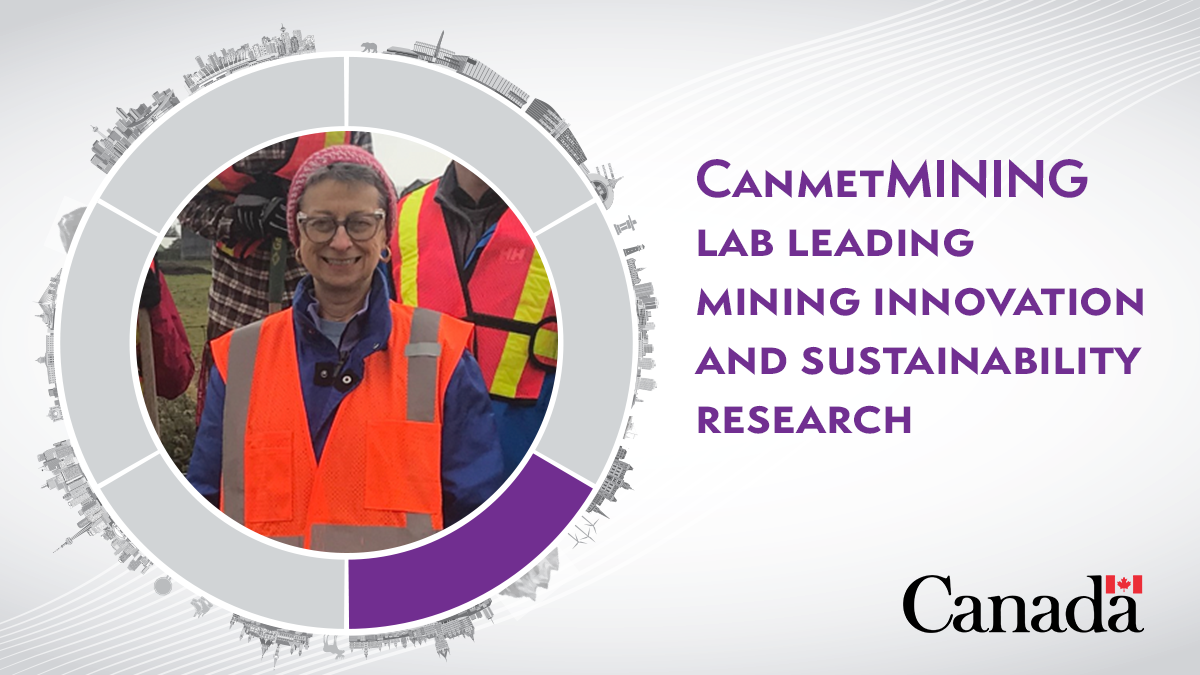
Maureen Leaver is the Manager of the Canadian Certified Reference Materials Project at CanmetMINING, which helps improve the reliability of measurements at mineral analysis labs in Canada and around the world by certifying reference materials. Throughout her career, she has been mentored by colleagues within the Department, other government departments and industry. She has become a mentor to her colleagues and considers it a privilege to provide this assistance to the next generation of Scientists who will continue NRCan’s reputation for excellence.
Carole Lafontaine, Laboratory Technologist
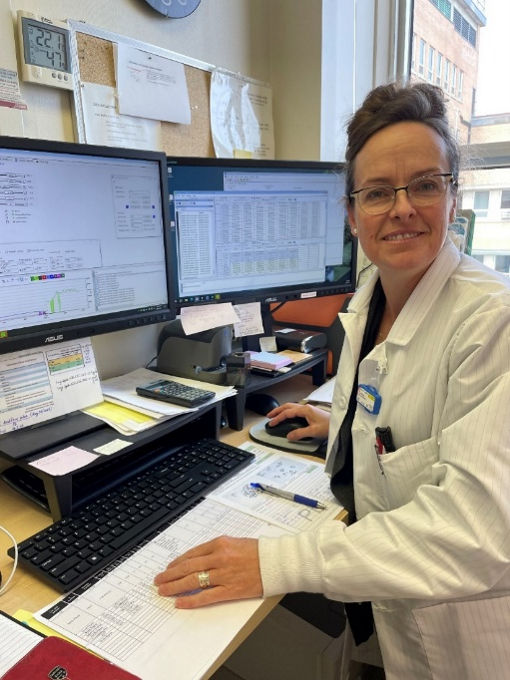
Carole Lafontaine is a thermal ionization mass spectrometry technologist working in the geochronology laboratory at the Geological Survey of Canada. She operates a mass spectrometer and performs Uranium-Lead (U-Pb) isotopic analyses of minerals to determine the age of rocks and timescales of geological events. Her work supports scientific researchers to analyze and interpret high-precision geochronological data, in particular to develop models of ore formation for resource assessment and for reducing risk in mineral exploration.
Jade Bergeron, Laboratory Chemist
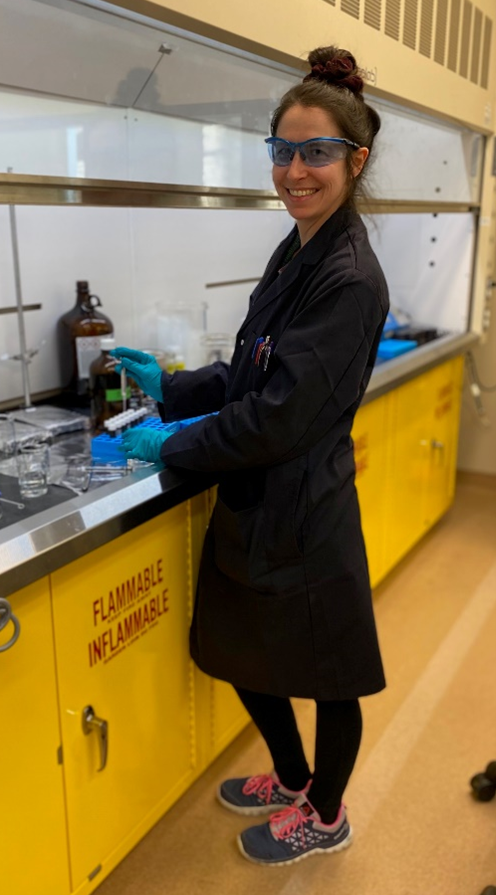
Jade Bergeron is a Laboratory Chemist with the Geological Survey of Canada’s Delta-Lab in Québec and has worked with the GSC since 2014. Her work focuses on isotope geochemistry. This involves using cutting-edge techniques to better understand the environmental impacts of natural resource development, which she finds very demanding but rewarding. She is also responsible for Health and Safety in her laboratory.

Start or advance your career in mining
Start or advance your mining career by learning more about different career paths and training opportunities within the sector.

Information for communities
Learn more about how your community can develop the capacity and prepare for mining and consult our tools and programs.
Contact us
Have questions? Interested in collaborating with us? Reach out to us by email at cmmp-pcmm@nrcan-rncan.gc.ca.
